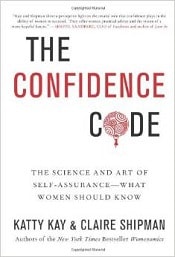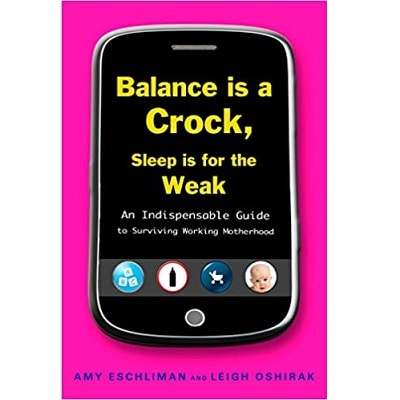This post may contain affiliate links and Corporette® may earn commissions for purchases made through links in this post. As an Amazon Associate, I earn from qualifying purchases.

A new MBA student has plenty on her plate: classes and projects, networking events, recruiting opportunities — not to mention the typical grad school challenges of making new friends and (for some) adjusting to a new city. Reader R wonders if we have any great tips for full-time MBA students, particularly female MBA students…
Hi there, I was wondering if there could be a post centered around starting a full-time business program? I'm moving in for orientation next week and would love to see a post (with reader comments) about how to balance schoolwork with social activities and career recruiting/networking, suggested reading (BusinessWeek and WSJ?), how to approach recruiting events with the major companies on campus, etc… Thanks!
I think this is a great question, so I reached out to a few MBAs I know, and asked the Corporette Facebook group for tips. I've always thought of the experience of getting a law degree very different than an MBA, if only because socializing and networking is such a big component of the MBA, compared with the mentality of “your GPA is everything” in the first semester or two of law school. Some good tips from friends, when asked about balance and reading recs:
Some of our main fashion articles that might be of interest include our Ultimate Guide to Business Casual, Wardrobe Essentials for Work, and The Corporette Guide to Comfortable Heels — all constantly updated! If you're just starting out or on a budget, check out our Affordable Office Clothes roundup — and if you're plus-sized, check out our Plus-Size Picks for Work.
The Best Tips for Full-Time MBA Students
(From Kat's girlfriends with MBA degrees…)
- The first semester will be overwhelming. Focus on survival, and try to minimize outside commitments. It gets easier after that.
- Hahaha I had no balance. I was newly married, and then pregnant. Not prime times of life for going out. I guess that helped? I did read the WSJ every day, and used an RSS reader to keep track of industry news. And my GPA totally sucked. It all works out. Very few people fail their classes. I was told by an alum (who had been valedictorian) early on that it isn't worth having a high GPA at the expense of the social and networking benefits and I took that to heart.
- The key to survival is figuring out which 20% of the assigned reading you ACTUALLY have to read.
Recommended Reading for Female MBA Students
- Business reading: the WSJ, Bloomberg, Business Insider (it'll be easier once you narrow your focus; right now look at it as a generalist), Harvard Business Review — you can also follow influencers you like on LinkedIn.
- Women's business reading: The Forté Foundation, Forbes Woman, Catalyst.org, Ellevate Network (formerly 85 Broads) — there are a ton of others such as The Muse, but those tend to be more freelancer/entrepreneur focused.
- An amazing NYT article (that I recommend often here because it's such an interesting read) about why some women DON'T excel at business school (hint: it's not them — but understanding how some of the cards are stacked against you can be positive).
- A collection of Stanford Business students' accounts of a typical week in an MBA program, Chicago Booth student blogs at The Booth Experience, and blogs from MIT Sloan's class of 2016
- I'd also suggest reading Lean In, by Sheryl Sandberg — she only talks about her MBA experience briefly, but in general it's a quick read and a good one.
- Also, Lisa from Privilege has blogged before about her takeaway from major MBA classes (an amusing read), and a friend of a friend is apparently planning to blog her Kellogg MBA experience (after being a TV producer for years) at TV to MBA.
A note about the Forté Foundation's website: Their “MBA Central” offers free webinars, a schedule of in-person events, GMAT prep, tips on picking a school, free student membership, an e-newsletter, and more.
Psst: we've talked before about how to become a leader (including reading suggestions for leaders), as well as the best reading material for MBA students, deciding whether to get an MBA, financially preparing yourself for grad school, and getting used to a full-time student budget, all of which may be helpful to you as well.
Ladies, what are your best tips for full-time MBA students, particularly female MBA students? What is the best reading for them; how do you suggest they balance school and life?
(Pictured at top: Ceremonia anual de graduación de programas…, originally uploaded to Flickr by Universidad de Duesto. 2019 image update via Stencil.)
Some must-read business books for women — update coming soon!







bridget
I have no actual MBA specific advice, but my general advice is to get used to the idea that you can’t get everything done to the quality you would like it done in the time allotted. It’s just not possible.
If you’re very high-achieving, you’re often used to being able to get everything done, well. (Some college majors, like engineering, do not lend themselves well to this.) But there comes a point in your schooling where intelligence, drive, and time management simply aren’t enough to get you through. That’s okay. Everyone else has the same problem.
Anonymous
What I’d recommend:
– At least half the benefit of the MBA is not in the class room. Even during the chaotic first semester, get involved in clubs, go to speakers / company presentations (even if you are not that interested in that company), participate in case competitions.
– Take on a leadership position, at least within a club – now that I recruit, if someone has no leadership roles, it is generally a red flag that they are not someone who is engaged.
– Internship interviews will come earlier than you think – start working on your resume and cover letter and practicing interviews in at least November. If you wait until January, you will be behind the curve and struggle to get offers.
– You will live and die by your group in classes; invest the time to have a good relationship with each other.
– Find 2nd year mentors, in addition to what might be assigned.
– Keep your outlook calendar up to date.
– Read what the administration/ clubs /etc send you – don’t be the person who shows up to something and doesn’t know the dress code.
– Make time to keep working out.
What not to worry about:
– Grades – with the curve, it’s hard to get an A, but it is also really hard to fail. Accept that a B+ is fine and move on. If you really want good grades, know that there is an opportunity cost for that. Also, your classmates will slack off as the year goes on, so 2nd semester, grades will be easier.
– Maintaining the business dress the administration will try to enforce – we dressed nice for a month or so, but after that it was jeans and flip flops.
Pancakes
Recent Kellogg alum here. Unless you want to go into banking or consulting, grades aren’t important. And even then, there are folks who get a C here and there and still end up in these fields. And if your school has grade no disclosure, well, you really don’t have to worry. Just make sure you are learning! Don’t slack off or you’ll be wasting your time and your classmates’ time. And your money. But on the same token, it’s ok to get mostly B’s.
Networking is of utmost importance. It will get you in the door, but it won’t close the deal. But getting on firms’ closed list for internship and full time recruiting is key.
Not sure what program you’re going into, but have a pretty good idea of what you’re interested in doing, at least for your summer. Remember, you can always recruit again for full time if you hate your summer or don’t end up at your dream firm — it’s not ideal but it’s far from the end of the world. If you don’t know what you want to do, figure it out as soon as possible. Networking with companies starts very quickly, and you don’t want to waste your time networking with consulting firms and miss out on recruiting with industries that overlap on the tail end of recruiting, such as CPG. And more importantly, you don’t want to burn yourself out by going to a million networking or recruiting events. So have a focus. And if you’re interested in off-campus recruiting, don’t let all the people running to consulting or brand manager positions sway you into doing the same — chances are, you’ll end up successful yet unhappy, or worse, unsuccessful and burnt out and behind on recruiting for what you really wanted.
Don’t overcommit to leadership or extracurricular activities. I’d recommend a balance of one, maybe two, true leadership activities and just be a participant in other clubs/organizations. No need to be an officer in 5 diff clubs.
The first maybe 6 months are important for bonding and making friends with your classmates. Don’t skip out on these. You can relax your social schedule later, but it can be a bit tougher to make friends after everyone has found their niche. If you don’t want to be aggressive with your social schedule in the beginning, you will still make friends, no worries, BUT my advice is only to make things easier for yourself in the long run!
Don’t do the extra reading unless you have nothing to do for some crazy reason — trust me…you won’t have time. Make a mental note of it for later if something sounds interesting…maybe over a break.
Feel free to ask any other questions — happy to help.
Sara
Does anyone have any advice for those doing full-time online programs? I’m remaining employed full time and doing the MBA program full time–so I recognize having an outside life is pretty much going to be nonexistent for two years. Any tips on how to get the most out of the networking and socializing when I’ll be 2,000 miles away from the actual school?
Anonymous
This is really tough. The few people I know who have done the online MBA did not see a lot of benefit from a network;it just isn’t what these programs are set up to achieve. Everyone who did it did so to check a box to get better opportunities in their firm / company.
A lot of the networking takes place outside of class at events that you just can’t do online. I would say no matter how many 1:1 calls with other students you have, it just won’t match the on campus opportunities. To put in perspective how much time networking and outside class events take up, I probably put in more hours during my MBA than I do now as a consultant at a major firm. So, if you are working full time, I am not sure it is possible to expect the benefit of networking and career development that you will get from a traditional MBA program. This is probably not an issue if you already have a strong network and are not switching careers, i.e., you are not looking to change jobs (especially with a change to function / industry) after the MBA. If you are looking to change jobs, I would have a serious conversation with the career department up front about what you need to do. Also, get to know the policies of firms / companies that recruit; for example, my firm does not hire out of online MBA programs.
Tips to consider:
– search for anyone in the program local to you to be able to meet / work in person
– g-chat instead of calls for group projects
-Set up g-chat meetings to get to know other classmates with similar interests.
Sara
Thank you! That’s good advice!
Thankfully, my program (Kelley) did a one week orientation on campus, so I’ve met my classmates–and I’m finding it much easier to “network” and collaborate in general online since I can match a person with a username.
Lisa
Thanks Kat! My B-School experience was too long ago for me to trust any recommendations I might give on how to do it better. Except, be sure you know what business really entails before you go;). Not something to do on a whim. But I imagine the OP is way, way, better set than I was in the 1980s.
Jackie
Thanks for linking to my site! This is all such great advice, I’ll definitely be acting on advice from the post and from these wonderful comments!
Heidi
FOMO rules at business school and in my opinion the primary key to success is to know one’s limitations and get over the guilt of not part-taking in 80% of the opportunities offered.
IMO it really helps to be clear about the three things one wants out of b.school and then ruthlessly say No to almost everything else. What I’m not saying is that after some re-consideration those three things cannot change throughout the year (they actually should!). But I am saying that getting sidetracked and wasting time on side projects is useless.
Totally “non-autobiographical”example being given:
Let’s say you come from a prestigious industry that a lot of fellow students wish to get into post-MBA. And let’s say, you really want to get out of said industry after your MBA. And let’s say your two primary goals for b.school were a job in a different industry and getting by academically.
It’s the week before a big test and someone approaches you about taking part in a case competition that happens for the next three days up until two days before the big test. The prize is a few thousands dollars, spending the night growing closer to highly ambitious people, and there is the added upside potential of really impressing your peers by way of your insider knowledge from your background. The downside is probably a severe lack of sleep or underperforming on the test.
What will most students do?
Work through the night on the case competition, be bummed about their third place, then unmotivatedly cram for their test (because they feel like they deserve some sleep). In some cases their cramming will be just enough to reach their goal, in some instances it won’t.
What should do you do?
You stay the heck away from the case study, study for your test and get some sleep and if there is still time left catch dinner or coffee with someone from the industry you wish to get into.
Why?
Because in this specific case (for whatever reason) academics are one of your top 2 priorities. So you should devote your time to that. And if you got time left over, use it on your other top goals. Just filling up your time with every “prestigious” opportunity that presents itself, will just make you lose your focus.
2Y
First off, congrats! These next two years will be amazing, as daunting as it may seem now :)
I’m a second year student and I vividly remember being in your shoes this time last year. There’s a popular saying amongst students: there are three S’s – study, sleep & social – and you can only truly achieve two of those at any given time. While maybe a slight exaggeration, it does bring up a good point: you need to master ruthless prioritization over this next year.
A lot of commenters have provide great tips above, so I won’t reiterate too many of them. Here are my thoughts from what I’ve experienced over the past year:
Schoolwork. Honestly, do not stress too much about schoolwork. The extra time and effort that it takes to beat the curve is not worth the diminishing returns in your GPA. It is plenty sufficient to learn the material well enough to speak intelligently to the general subject matter, and to understand it contextually if it ever comes up in your job/internship. This is especially true if your school has grade non-disclosure (which mine thankfully has). It will be tough to adjust to this as you (and your classmates) are driven and high achieving!
Networking. This is huge – with your classmates, with 2nd year students, companies and your local community. Depending on what industry you’re thinking to recruit for, there will be various levels of importance on this aspect in the internship recruiting process. For example – for tech, it’s important to set up coffee chats with relevant folks in the industry as an informational interview, and it’s mainly just that. For consulting and banking, these chats are often actually informal interviews and part of the vetting process, as casual as it may seem. However, there’s a balance here – one girl in my cluster missed half her classes first semester since she set up 15 – 20 coffee chats each week. This was overkill, and didn’t net her any additional offers compared to her peers who only did ~5 chats each week.
Clubs. It’s important to be involved with your industry and functional clubs – while it’s great to be an officer, there’s no need to take on more than 2 leadership positions. These clubs can be a huge time suck, especially if you’re on certain committees like events or conference.
Recruiting. It sounds like you’re interested in large companies, which will most likely go through official on-campus recruiting processes. These start early – as early as September, with company info sessions and weeks of more intimate events. With the big industries, mainly consulting and banking, it’s easy to get caught up in the whirlwind of emotions and high tensions during this time. Remember to take a step back and recharge – schedule 30 minutes each day for yourself to just take a breather from everything. Herd mentality, especially in b-school, can elevate stress levels to insane heights, and it’s important to be able to recharge and re-align yourself.
Additionally, even if you’re not recruiting for these big OCR industries, it’s easy to get swayed by the army of suits and case prep sessions going on in the fall. Always keep in mind your goals for attending business school – while everyone was interviewing and prepping for consulting, with offers in hand by mid-January, I had yet to start my process since tech recruits much later in the season. It was tempting to join in the consulting rush with everyone else, but I held true to my specific goals and received a great internship offer come March. Don’t lose focus.
But most importantly, learn from your peers and HAVE FUN! These next two years are an amazing time to develop both professionally and personally. If you’ve always wanted to try working at a start-up, take that internship during the spring semester. If you’ve always wanted to travel to X country, join that trip with 50 other students. The classroom is only 50% of the experience – the rest is made up of networking and social, fun activities.